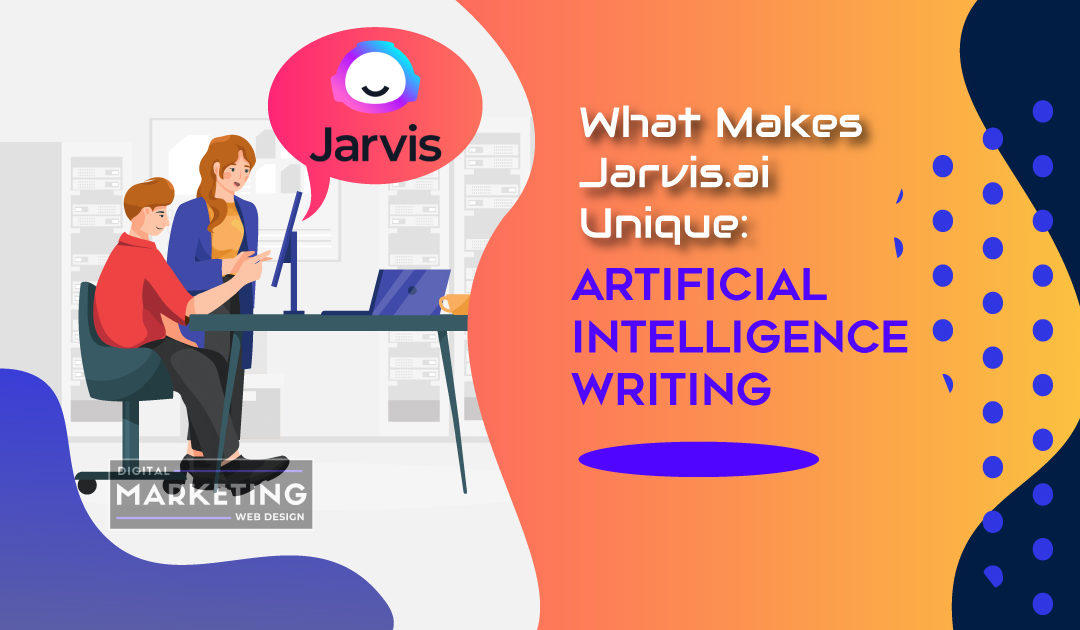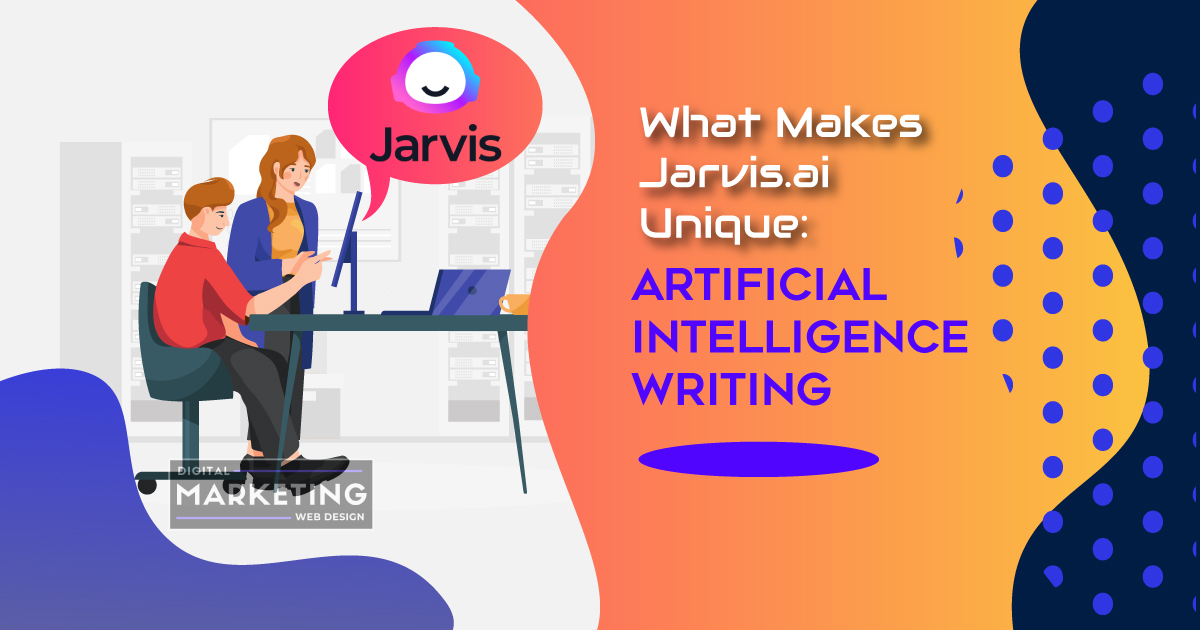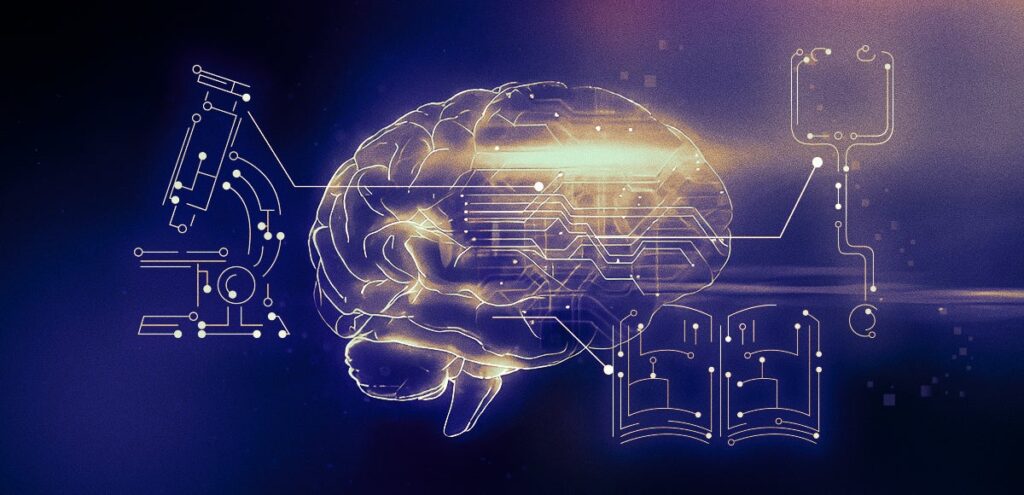Unique A.I. Software uses advanced technology to provide cutting-edge solutions for various industries.
In today’s fast-paced world, businesses are constantly in search of innovative tools to stay ahead of the competition. Unique A. I. Software offers a range of unique features, such as machine learning algorithms and natural language processing, to optimize operations, improve efficiency, and enhance decision-making processes.
This software is tailored to meet the specific needs of each industry it serves, whether it be healthcare, finance, marketing, or any other sector. By harnessing the power of artificial intelligence, Unique A. I. Software revolutionizes the way organizations operate, allowing them to streamline processes, automate tasks, and unlock valuable insights from data. With its user-friendly interface and scalable architecture, this software is not only powerful but also easily adaptable to meet the evolving needs of businesses. Stay ahead of the curve with Unique A. I. Software.

Credit: www.linkedin.com
Understanding A.i. Software
In today’s rapidly evolving technological landscape, Artificial Intelligence (A.I.) software has emerged as a revolutionary tool that has the potential to transform industries across the board. A.I. software encompasses a wide range of applications, from chatbots and virtual assistants to advanced data analysis and predictive algorithms. To grasp the capabilities and power of A.I. software, it’s essential to delve into its definition and understand how it works.
Definition Of A.i.
A.I., or Artificial Intelligence, refers to a branch of computer science that focuses on creating intelligent machines capable of simulating human cognitive functions. These cognitive functions include tasks such as learning, problem-solving, understanding natural language, and decision-making. A.I. software uses algorithms and data to analyze, interpret, and respond to complex situations, providing automated solutions with minimal human intervention.
How A.i. Software Works
A.I. software operates based on machine learning algorithms and neural networks. These algorithms process vast amounts of data to identify patterns, make predictions, and learn from experience. A.I. software utilizes both supervised learning, where it is trained using labeled data, and unsupervised learning, where it learns from unstructured data. Through a continuous feedback loop, A.I. software constantly refines its algorithms, becoming increasingly accurate and efficient over time.
A crucial aspect of A.I. software is its ability to handle natural language processing (NLP), enabling it to understand and respond to human speech and text. By incorporating NLP, A.I. software can analyze customer inquiries, provide contextual responses, and even engage in interactive conversations. This natural language understanding significantly enhances user experience and streamlines various business processes.
A.I. software’s underlying neural networks consist of interconnected layers of artificial neurons. These neurons process information and pass it on to subsequent layers. Each layer builds upon previous ones, leading to a hierarchical representation of data. By adjusting the strength of connections between neurons, A.I. software can optimize its performance and accuracy.
Furthermore, A.I. software leverages advanced algorithms to handle tasks such as image recognition, data clustering, fraud detection, and more. These algorithms, such as convolutional neural networks and deep reinforcement learning, enable A.I. software to accomplish complex tasks quickly and with accuracy beyond human capabilities.
In conclusion, A.I. software is a remarkable technological advancement that has the capacity to transform industries by automating processes, driving efficiency, and providing valuable insights. Understanding the definition and inner workings of A.I. software is crucial to harnessing its potential and embracing the benefits it can bring to various sectors.

Credit: digitalmarketingwebdesign.com
Types Of A.i. Software
A.I. software has revolutionized numerous industries by providing advanced automation and intelligent decision-making capabilities. There are various types of A.I. software that cater to different needs and functionalities. In this blog post, we will explore the different types of A.I. software and how they contribute to enhancing efficiency and productivity.
Machine Learning Software
Machine learning software is designed to enable computers to learn and make predictions or decisions without explicit programming. It uses algorithms that analyze large datasets, identify patterns, and improve performance over time. Industries such as healthcare, finance, and marketing benefit immensely from machine learning software’s ability to automate tasks, detect anomalies, and provide valuable insights.
Natural Language Processing Software
Natural Language Processing (NLP) software enables computers to understand and interact with human language effectively. It utilizes techniques like text analysis, sentiment analysis, and language translation. NLP software finds applications in chatbots, voice assistants, and content analysis, enhancing customer service, automating responses, and extracting valuable information from vast amounts of textual data.
Computer Vision Software
Computer Vision software enables computers to interpret and understand visual information from images and videos. By utilizing techniques like image recognition, object detection, and image segmentation, this software has transformed industries like autonomous vehicles, surveillance, and medical imaging. Computer Vision software aids in object identification, tracking, and image-based analysis, providing crucial insights and enhancing automation processes.
Benefits Of A.i. Software
In today’s rapidly evolving world, businesses are turning to A.I. software to gain a competitive edge. With advanced machine learning algorithms and data analysis capabilities, A.I. software offers a wide range of benefits that can revolutionize how businesses operate. Let’s explore some of the key advantages of implementing A.I. software:
Improved Efficiency
A.I. software enables businesses to streamline their operations, leading to improved efficiency. By automating complex tasks and processes, A.I. software eliminates the need for manual intervention, resulting in faster and more accurate outcomes. For example, A.I. algorithms can analyze large datasets in seconds, allowing businesses to make data-driven decisions promptly. This not only saves time but also ensures that resources are utilized optimally, leading to increased productivity.
Enhanced Decision Making
A.I. software empowers businesses with valuable insights and predictive analytics, facilitating enhanced decision-making. By analyzing vast amounts of data from various sources, A.I. algorithms can identify patterns, trends, and correlations that may not be apparent to human decision-makers. This helps businesses make more informed and strategic decisions, reducing the likelihood of errors and increasing the likelihood of success. With A.I. software, businesses can gain a competitive advantage by staying one step ahead of the competition.
Automation Of Repetitive Tasks
One of the significant benefits of A.I. software is its ability to automate repetitive tasks. Mundane and repetitive tasks can be time-consuming and prone to errors when performed by humans. By utilizing A.I. software, businesses can automate these tasks, freeing up valuable human resources to focus on more complex and creative endeavors. This automation not only improves accuracy but also saves time and resources, leading to increased productivity and cost-efficiency.

Credit: digitalmarketingwebdesign.com
Challenges Of A.i. Software
Artificial Intelligence (A.I.) software has brought significant advancements in various industries, but it also poses its own set of challenges. These challenges range from ethical concerns to lack of transparency and data privacy issues. Understanding these challenges is crucial in ensuring the responsible and ethical development and use of A.I. software.
Ethical Concerns
Ethical concerns surrounding A.I. software have become a critical topic of discussion. As A.I. systems become increasingly intelligent, there are concerns regarding the ethical implications of their decision-making capabilities. For instance, how can we ensure that A.I. software makes ethical decisions in situations where human judgment and morality are involved? The lack of human empathy and moral reasoning in A.I. programs raises questions about their accountability and potential biases.
Lack Of Transparency
The lack of transparency in A.I. software is another challenge that needs to be addressed. Many A.I. algorithms are complex and intricate, making it difficult for developers and users to understand how these systems arrive at their decisions. This lack of transparency leads to reduced trust in A.I. software. Users may question the fairness and reliability of the outcomes produced by these systems, especially in critical decision-making scenarios such as healthcare or finance.
Data Privacy Issues
Data privacy is a significant concern when it comes to A.I. software. A.I. systems heavily rely on vast amounts of data to train and improve their performance. However, this also raises questions about the privacy and security of the data used. Organizations must carefully handle user data to ensure that it is collected, stored, and utilized in a manner that respects privacy laws and regulations. Failure to address data privacy issues can not only harm individuals but also erode trust in A.I. technology as a whole.
Unique Features Of A.i. Software
Artificial Intelligence (A.I.) software has revolutionized the way businesses operate, offering immense capabilities that were once unimaginable. This cutting-edge technology has transformed industries and provided businesses with unprecedented efficiency and productivity. The unique features of A.I. software empower organizations to extract meaningful insights, make accurate predictions, and adapt to new data seamlessly.
Predictive Analytics
Predictive analytics is one of the standout features of A.I. software. It enables businesses to derive valuable insights from vast amounts of data and anticipate future trends with remarkable accuracy. By leveraging complex algorithms, A.I. software analyzes historical data, identifies patterns, and makes predictions that assist businesses in making informed decisions. With predictive analytics, organizations can gain a competitive edge by foreseeing market trends, customer behavior, and potential risks, ultimately driving strategic decision-making and maximizing profitability.
Deep Learning Capabilities
A.I. software possesses remarkable deep learning capabilities. It mimics the human brain by constantly learning and improving from experience, allowing machines to recognize patterns and solve complex problems. Deep learning algorithms enable A.I. software to process and analyze unstructured data, such as images, videos, and text, with unrivaled efficiency. These sophisticated algorithms empower the software to develop insights and make decisions, leading to enhanced accuracy and efficiency across various tasks. With deep learning capabilities, A.I. software can perform intricate tasks, automate processes, and improve overall business operations.
Adaptability To New Data
A.I. software’s adaptability to new data is a crucial feature that sets it apart from traditional systems. Unlike static programs that often struggle with changes in input data, A.I. software has the ability to evolve and learn from fresh information seamlessly. Through machine learning, the software can recognize new patterns and adjust its algorithms accordingly, ensuring accurate and up-to-date results. This adaptability to new data allows businesses to stay agile and responsive in rapidly evolving industries, leveraging the power of A.I. software to gain a competitive edge.
Applications Of A.i. Software
Discover the endless possibilities of unique A. I. Software and its applications in various industries. Experience the power of advanced algorithms and automation for enhanced productivity and decision-making.
Artificial Intelligence (A.I.) software has made significant advancements in recent years, leading to a multitude of applications across various industries. From revolutionizing healthcare to enhancing financial decision-making, A.I. software has proven to be a game-changer. In this article, we will explore the diverse applications of A.I. software in the healthcare industry, financial sector, and manufacturing sector.
Healthcare Industry
A.I. software has immense potential in transforming the healthcare industry, enabling quicker and more accurate diagnoses, personalized treatments, and efficient patient care. Some notable applications of A.I. software in healthcare include:
- Medical imaging analysis: A.I. algorithms can analyze medical images such as X-rays, MRIs, and CT scans, assisting healthcare professionals in detecting diseases, tumors, and abnormalities more promptly.
- Drug discovery: A.I. software can accelerate the drug discovery process by analyzing vast datasets and identifying potential new drug candidates, enabling researchers to potentially find cures for diseases more efficiently.
- Virtual assistants: A.I.-powered virtual assistants can assist healthcare professionals in managing patient information, scheduling appointments, and providing basic medical guidance, ultimately improving overall efficiency.
Financial Sector
In the financial sector, A.I. software has revolutionized data analysis, risk assessment, and customer service. Here are some key applications of A.I. software in the financial industry:
- Algorithmic trading: A.I.-based algorithms can analyze market trends and make real-time trading decisions, maximizing profitability and minimizing risks in financial markets.
- Fraud detection: A.I. software can analyze large volumes of financial data, identifying patterns and anomalies that indicate potential fraudulent activities, thus protecting businesses and individuals from financial losses.
- Customer service chatbots: A.I.-powered chatbots can provide instant customer support, answering queries, and resolving issues promptly, enhancing customer satisfaction and reducing manual workload.
Manufacturing Sector
In the manufacturing sector, A.I. software has the potential to optimize production processes, improve quality control, and enhance operational efficiency. Some notable applications of A.I. software in manufacturing include:
- Quality control: A.I. software can automatically inspect and analyze products during the production process, identifying defects, and ensuring high-quality standards are met before the products reach the market.
- Supply chain optimization: A.I. algorithms can analyze supply chain data, predicting demand patterns, optimizing inventory levels, and improving delivery logistics, enabling manufacturers to streamline operations and reduce costs.
- Predictive maintenance: A.I. software can monitor and analyze machine data, identifying potential faults and predicting maintenance requirements, allowing manufacturers to perform timely maintenance and minimize unexpected equipment breakdowns.
These are just a few examples of the wide-ranging applications of A.I. software across industries. As technology continues to advance, we can expect even more innovative uses of A.I. software that have the potential to transform our lives and industries in unprecedented ways.
Future Of A.i. Software
The future of A. I. Software is exciting as it offers unique capabilities. With its advanced algorithms and machine learning, this software has the potential to revolutionize various industries, making processes more efficient and accurate. Its ability to analyze vast amounts of data and make predictions opens up new possibilities for businesses and individuals alike.
Advancements In A.i. Technology
The future of A.I. software is set to revolutionize the way we live and work. With continuous advancements in technology, there is a vast potential for A.I. software to reshape various industries and improve efficiency across multiple sectors.
One of the most promising aspects of the future of A.I. software lies in its ability to learn and adapt. Machine learning algorithms enable A.I. software to analyze vast amounts of data, learn patterns, and make predictions with high accuracy. This has significant implications for industries such as healthcare, finance, and manufacturing, where precise decision-making can have a profound impact on outcomes.
Moreover, the future of A.I. software is not limited to traditional programming models. Deep learning, a subfield of machine learning, allows A.I. software to independently learn and improve through neural networks. This enables the software to solve complex problems in a manner that closely mirrors human cognitive processes.
Integration Into Various Industries
The future of A.I. software holds immense potential for integration into various industries, fostering innovation and driving exponential growth. From healthcare to transportation, A.I. software is poised to revolutionize the way we operate and interact within these sectors.
In the healthcare industry, A.I. software can assist in diagnosis, drug discovery, and personalized treatment plans. The ability of A.I. software to analyze large datasets and identify patterns can aid doctors in making more accurate diagnoses and recommending appropriate treatment options.
Similarly, in the transportation industry, A.I. software can optimize traffic flow, reduce accidents, and enhance the overall efficiency of transportation systems. Through real-time data analysis and predictive modeling, A.I. software can anticipate traffic congestion, optimize routing, and improve road safety.
Furthermore, the future of A.I. software extends beyond these industries. With advancements in natural language processing, A.I. software can provide personalized virtual assistance, enhance customer support, and streamline various business operations. This has the potential to improve customer satisfaction, increase productivity, and drive revenue growth across multiple sectors.
In conclusion, the future of A.I. software holds tremendous possibilities. Advancements in A.I. technology, such as machine learning and deep learning, enable A.I. software to learn, adapt, and solve complex problems with remarkable precision. The integration of A.I. software into various industries presents opportunities for innovation, efficiency, and growth, ultimately shaping a future powered by intelligent technology.
Frequently Asked Questions On Unique A.i. Software
What Is Unique About This A.i. Software?
This A. I. Software stands out due to its advanced deep learning algorithms and ability to adapt and learn from new data. It provides accurate and personalized results, making it perfect for a wide range of industries.
How Does This A.i. Software Benefit Businesses?
By harnessing the power of artificial intelligence, this software optimizes processes, improves decision-making, and enhances efficiency. It analyzes vast amounts of data, uncovers patterns, and provides valuable insights, helping businesses stay competitive in today’s rapidly evolving digital landscape.
Can This A.i. Software Be Customized For Specific Industries?
Absolutely. This software is designed to be flexible and adaptable, making it suitable for various industries. Whether you’re in healthcare, finance, retail, or any other sector, this A. I. Software can be tailored to meet your specific needs and challenges.
Its versatility is one of its key strengths.
How Secure Is This A.i. Software?
Security is a top priority. This A. I. Software employs state-of-the-art encryption methods to safeguard sensitive data. With robust security measures in place, your information is protected from unauthorized access, ensuring peace of mind for both you and your customers.
Conclusion
The revolutionary A. I. Software showcased in this blog post proves to be an invaluable solution for businesses seeking innovation and efficiency. With its unique features and advanced capabilities, it empowers companies to streamline processes, make informed decisions, and unlock unprecedented growth opportunities.
By harnessing the power of artificial intelligence, businesses can stay ahead of the competition and achieve their goals in today’s rapidly evolving digital landscape. Experience the transformative potential of this cutting-edge technology and revolutionize your business today.




